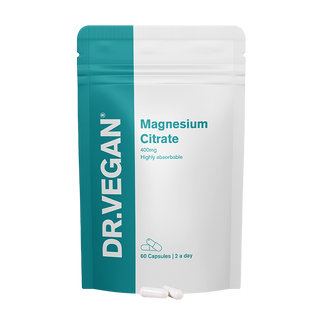Which type of Magnesium is right for you?

Magnesium is an essential mineral involved in over 300 biochemical processes in the body. It plays a key role in energy production, muscle and nerve function, sleep regulation, and heart health. But with so many different types of magnesium supplements available, how do you know which one is best for your specific needs? In this guide, we break down the most common forms of magnesium, what they're best for, their benefits, and what to avoid.
Types of magnesium
Forms of magnesium to avoid or use with caution
Magnesium oxide
Very poor absorption despite high elemental content. This form often causes digestive upset or laxative effect and is commonly sold as the basic magnesium supplement in pharmacies.
Magnesium sulfate (Epsom Salt)
Easy to overdose when taken orally. However, this is a good option for external use only (e.g. baths for muscle relaxation).
Magnesium glutamate and aspartate
Both glutamic acid and aspartic acid can become neurotoxic in isolated form. These compounds are components of aspartame, which has controversial neurological effects.
What about combined magnesium formulas?
Many magnesium supplements on the market contain a blend of several types (e.g., citrate, glycinate, oxide, malate) in one capsule or tablet. While this might sound like a convenient all-rounder option, there are a few reasons to be cautious.
Low amounts of the most effective forms
In combined formulas, the most beneficial and bioavailable types, like glycinate or taurate, are often included in small quantities, making it harder to reach a therapeutic dose.
Hidden forms with poor absorption
Less effective or cheaper types like magnesium oxide may be listed high on the ingredients list, potentially leading to digestive discomfort or poor results.
Unclear purpose
Different magnesium types support different functions; combining them can dilute the targeted benefits you're looking for, such as better sleep or more energy.
Unless clearly labelled and dosed, combined formulas may not give you enough of what you need or too much of what you don't.
Tip: Always read the label. Choose a supplement that clearly states the magnesium types and their individual dosages.
Discover our range of award-winning vegan supplements.
You may also enjoy reading:


















